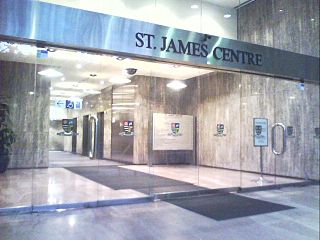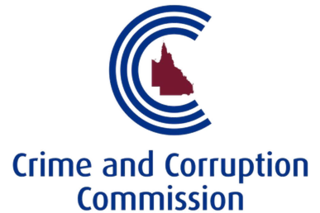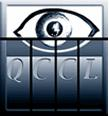Related Research Articles

The Serious Organised Crime Agency (SOCA) was a non-departmental public body of the Government of the United Kingdom which existed from 1 April 2006 until 7 October 2013. SOCA was a national law enforcement agency with Home Office sponsorship, established as a body corporate under Section 1 of the Serious Organised Crime and Police Act 2005. It operated within the United Kingdom and collaborated with many foreign law enforcement and intelligence agencies.
Police corruption is a form of police misconduct in which law enforcement officers end up breaking their political contract and abuse their power for personal gain. This type of corruption may involve one or a group of officers. Internal police corruption is a challenge to public trust, cohesion of departmental policies, human rights and legal violations involving serious consequences. Police corruption can take many forms, such as bribery.

The Queensland Police Service (QPS) is the principal law enforcement agency responsible for policing the Australian state of Queensland. In 1990, the Queensland Police Force was officially renamed the Queensland Police Service and the old motto of "Firmness with Courtesy" was changed to "With Honour We Serve". The headquarters of the Queensland Police Service is located at 200 Roma Street, Brisbane.

The Royal Commission into the New South Wales Police Service, also known as the Wood Royal Commission was a royal commission held in the State of New South Wales, Australia between 1995 and 1997. The Royal Commissioner was Justice James Roland Wood. The terms of reference were to determine the existence and extent of corruption within the New South Wales Police; specifically, it sought to determine whether corruption and misconduct were "systemic and entrenched" within the service, and to advise on the process to address such a problem.
Gordon Richard Nuttall is a former Australian politician who represented Sandgate in the Queensland Parliament from 1992 to 2006. He was a member of the Labor Party and served as a minister in the Beattie Ministry from 2001 to 2005. In 2009 he was found guilty of corruptly receiving secret commissions during his time in office and jailed for seven years. In 2010, he was found guilty of five charges of official corruption and five charges of perjury and, ultimately, jailed for an additional seven years, the longest jail term for corruption handed to a Commonwealth politician. He was released on parole in July 2015.
Stuart William Copeland is an Australian politician. He was a National/Liberal National from 2001 to 2009, representing the district of Cunningham.

The Corruption and Crime Commission is an independent anti-corruption agency established on 1 January 2004 to improve the integrity of the Western Australian public sector and investigate allegations of misconduct against public officers. It took over from the Anti-Corruption Commission and has jurisdiction over all State Government departments, instrumentalities and boards as well as universities and local governments. This includes more than 148,000 employees in 278 public authorities.
The Criminal Justice Commission was established in 1989 by the Queensland Criminal Justice Act 1989, following widespread corruption amongst high-level Queensland politicians and police officers being uncovered in the Fitzgerald Inquiry. It has since merged in 2002 with the Queensland Crime Commission to form the Crime and Misconduct Commission.

The Crime and Corruption Commission (CCC) is an independent Queensland Government entity created to combat and reduce the incidence of major crime and to continuously improve the integrity of, and to reduce the incidence of misconduct in, the Queensland public sector. Formerly the Crime and Misconduct Commission (CMC) 2002-2014. The CCC also has a witness protection function. The commission was established on 1 January 2002, when the former Criminal Justice Commission and the Queensland Crime Commission were merged into a single entity under the name Crime and Misconduct Commission.

The New South Wales Crime Commission is a statutory corporation of the Government of New South Wales. It is constituted by the Crime Commission Act 2012, the object of which is to reduce the incidence of organised crime and other serious crime in the state of New South Wales, Australia.
Organised crime in Australia refers to the activities of various groups of crime families, organised crime syndicates or underworld activities including drug trafficking, contract killing, racketeering and other crimes in Australia.
The history of gangs in Australia goes back to the colonial era. Criminal gangs flourished in The Rocks district of Sydney in its early history in the 19th century. The Rocks Push was a notorious larrikin gang which dominated the area from the 1800s to the end of the 1900s. The gang was engaged in running warfare with other larrikin gangs of the time such as the Straw Hat Push, the Glebe Push, the Argyle Cut Push, the Forty Thieves from Surry Hills, and the Gibb Street Mob.
Blasphemy is not a criminal offence under Australian federal law, but the de jure situation varies at state and territory level; it is currently not enforced in any Australian jurisdiction. The offences of blasphemy and blasphemous libel in English common law were carried over to the Australian colonies and "received" into state law following Federation in 1901. The common-law offences have been abolished totally in Queensland and Western Australia, when those jurisdictions adopted criminal codes that superseded the common law. In South Australia, Victoria, and the Northern Territory the situation is ambiguous, as the local criminal codes do not mention blasphemy but also did not specifically abolish the common-law offences. In New South Wales and Tasmania, the criminal codes do include an offence of blasphemy or blasphemous libel, but the relevant sections are not enforced and generally regarded as obsolete.

The Queensland Council for Civil Liberties (QCCL) is a voluntary organisation in Australia concerned with the protection of individual rights and civil liberties. It was founded in 1966 in order "to protect and promote the human rights and freedoms of Queensland citizens." The QCCL is regularly asked by the Government to make submissions to committees, which is how bills are made in Parliament. These submissions cover issues such as closed circuit television, abortion law reform, sentencing issues in our court system and changes to legislation already in place, which are called amendments.
The Costigan Commission was an Australian royal commission held in the 1980s.

Jacklyn Anne Trad is a former Australian politician. She was Deputy Premier of Queensland from 2015 to 2020, Treasurer of Queensland from 2017 to 2020 and represented the Electoral district of South Brisbane for the Labor Party from April 2012 to October 2020.
The Environmental Defenders Office (Qld) Inc. was a non-profit, non-government Community Legal Centre which was established in 1989. and is one of nine independent Environmental Defenders Offices located across Australia which collaborated in a loose network known as the EDOs of Australia.
Vicious Lawless Association Disestablishment Act 2013 was an act of the Parliament of Queensland, enacted to "severely punish members of criminal organisations that commit serious offenses". The act aimed to "come down harshly on outlaw motorcycle gangs and their members" and was one of three passed in the same session on 16 October 2013, going into effect immediately. The associated acts enacted on the same date were the Criminal Law Amendment Act 2013 and the Tattoo Parlours Act 2013.
Criminal Law Amendment Act 2013, an act of the Parliament of Queensland, aims to combat "illegal activities of criminal gangs, including criminal [motorcycle] gangs," that is, significant types of organised crime in Queensland. The act was passed on 16 October 2013, and as of 17 October 2013, the Attorney-General of Queensland had indicated that the law had received Royal Assent and was in force. In 2016 it was repealed as part of the introduction of the Serious and Organised Crime Amendment Bill .
The Electoral and Administrative Review Commission (1989—1993) was an agency of the Government of Queensland, Australia to investigate the electoral system and public administration of the state and local government authorities of Queensland.